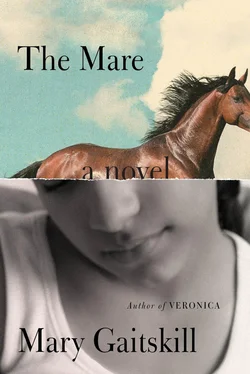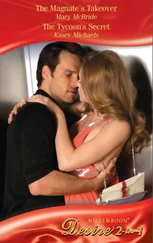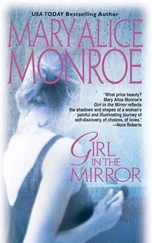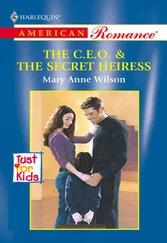I heard Paul’s name. We came forward. The child turned her eyes fully on us. I had an impulse to cover my stunned heart with my hand, and a stronger impulse to touch the girl’s face. “This is Velveteen Vargas,” said a nondescript someone with a smile in her voice. “Velveteen, this is Mr. and Mrs. Roberts.” She was ours!
The place they let us off at was a school, but empty, with trees around it. Like dreams I have about school sometimes, where it’s deserted and I’m the only one there — or everybody’s there, everything’s normal, except that I’m invisible. When I got off the bus, this smiling lady was standing there. Her hair was white-blond and her eyes were blue. There was a man there too, wearing shorts that showed the blond-hairiest legs I ever saw. But it was her I looked at most. She didn’t look like the lady in the booklet at all. She was wearing white pants and a white top with sparkles on it. She was smiling, but something else in her face was almost crying. It was okay though. I don’t know why. I smiled back. She smiled like she was seeing heaven. I got shy and looked down.
“Velveteen,” she said. “That’s a pretty name.”
“Velvet,” I said. “That’s what people call me.”
They said they were Ginger and Paul. They took me to their car. We drove past lots of houses with flowers and bushes in front of them. In the city when the sky is bright it makes everything harder on the edges; here everything was soft and shiny too, like a picture book of Easter eggs and rabbits I read in third grade when I was sick on the nurse’s station cot. I loved that book so much I stole it from the nurse’s station, and the next time I was sick I took it out and looked at it and it made me feel better even though by then I was too old for it. I don’t have it anymore; probably my mom threw it out when we moved.
The man turned around in the driver’s seat and asked me if I liked school. I said, “Yes.” The lady turned around, smiling with no crying anywhere now. She said, “Really, you like school? I didn’t think anybody actually liked school. I hated school!” She smiled like this lady in a movie I saw about a girl who everybody realizes is actually a princess. The girl gets discovered, and this lady with blond hair and blue eyes takes her into a room where all her jewels are waiting. The girl tries on her jewels while the lady smiles.
I said, “I like school because I see my friends there.”
“What about the work?” asked the man.
“I like it because I get all 3’s and 4’s.”
“Is that A’s and B’s?”
“Four means you’re perfect, 3 means you’re good, 2 means not good—1, you got nothing.”
“That’s great you get 3’s and 4’s,” said the lady, and she smiled like she’d put a crown on my head.
The smile was nice, but it was starting to be creepy too. Because she was smiling like she knew me and she did not. But my face kept smiling back.
“Did Ginger tell you we have horses right next door?” said the man. “A stable?”
“Yes,” I said. And then we pulled into the driveway of a red house with a big spread-out tree in front. I was surprised. It did not look like the house of rich people.
Inside it wasn’t rich either. It wasn’t even as clean as our house — there were papers and books on the floor, and clothes hanging on chairs. The floor was painted a big white and blue diamond pattern and there were pictures on the walls of cartoon animals and a devil smoking a cigarette. There was a deep-blue bowl on the table with apples and oranges in it. The dining room window had curtains that were blue on one side and bright purple on the other. The bowl was my favorite; I sat down and touched the shining side of it.
“Are you hungry?” said the lady.
I was, but I was too embarrassed to eat something like an apple or an orange that you tear apart, so I said no.
“Do you want some cookies?”
I did, but I didn’t want her to think I was the kind of pig who starting eating first thing, so I said, “Can I see my room?”
They both came up to show it to me, the man carrying my suitcase. It was a little room, with a pink cover on the bed and a painting of a sleeping girl hanging on the wall over it. I decided I liked this house; it was so quiet, but all the pictures and bright things made it seem like something fun was happening invisibly. I thought about my mom; I wished she could be here. Then the lady said, “Do you want to call your mom?” And I started liking her.
She was so beautiful, so solid in her body, but so shy in the way she took things. I felt excited and scared about how to act — I couldn’t even respond properly to my own family, so how could I take care of a needy child from another culture? It was a cliché to think that way, but I could feel her difference. At the same time, I could feel her child’s goodness, her willingness to help us, and that was more compelling. We gave her privacy to talk to her mother and when we got downstairs, I whispered to Paul, “What do you think?”
“She’s a sweetheart,” he said. “It’s going to be fine.”
She came downstairs almost immediately. Her face was sad, and the shift of emotion was profound — for a moment I thought something terrible had happened. But she just said her mom wasn’t home. I got her to eat some cookies, and asked her what she wanted to do. I said we could go to see the town or to the lake or the bowling alley or for a walk around the neighborhood. Or we could walk over and visit the horses in the stables across the road from us. “The horses,” she said, some cookie in her mouth. “We could see the horses?”
I said we could go to the horses, but I didn’t really care. I just said that because I knew they were close — I did want to see horses, but I didn’t feel like it right then. Because my mom was gone when I called and I felt alone, like she was really gone, and I was stuck here with a devil on the wall and nice people who didn’t have anything to do with me.
But I went with the lady, Ginger. She talked about something, I don’t know what. I was trying to count the hours in the days I had left and trying to subtract how much time I’d been there, starting from the bus. We passed through a gate with a sign that said “Wildwood”; suddenly there was too much space around us — green and green and green with some little fences and in the distance a big building with a giant hole for a door. I wanted to reach for Ginger’s hand, and that made me mad at myself because I was too old for that. Then she said, “They give riding lessons for kids here. That’s something we could do if you want to.”
I didn’t say anything.
And then we came to the building with the giant door.
“Here’s the stable,” said Ginger.
It looked scary from the distance, but inside it was not. It was dark and warm. It was all wooden. The smell of it was deep. You could feel it, like it was breathing all around you, but it wasn’t scary, it was the opposite. And there was a horse, looking at me from an opening in his cage. A sign over him said “Graylie,” and there were pictures and a dirty red teddy bear next to his face. And then there was another one and another one: “Diamond Chip Jim” (he had a purple fish toy and a bunch of fake flowers); “Blue Boy” (he had a bunch of plastic bottles); “Baby” (she had a doll); “Officer Murphy” (he had a bunch of stuff written on some papers and a blue ribbon); “Little Tina” (she didn’t have nothin’). There were some people too, walking around, but I didn’t notice them. The horses were all looking at me and Ginger, and some of them were saying things: Who are you? Come over here! Have you got something for me? I’m lonely. Don’t bother me!
Читать дальше












